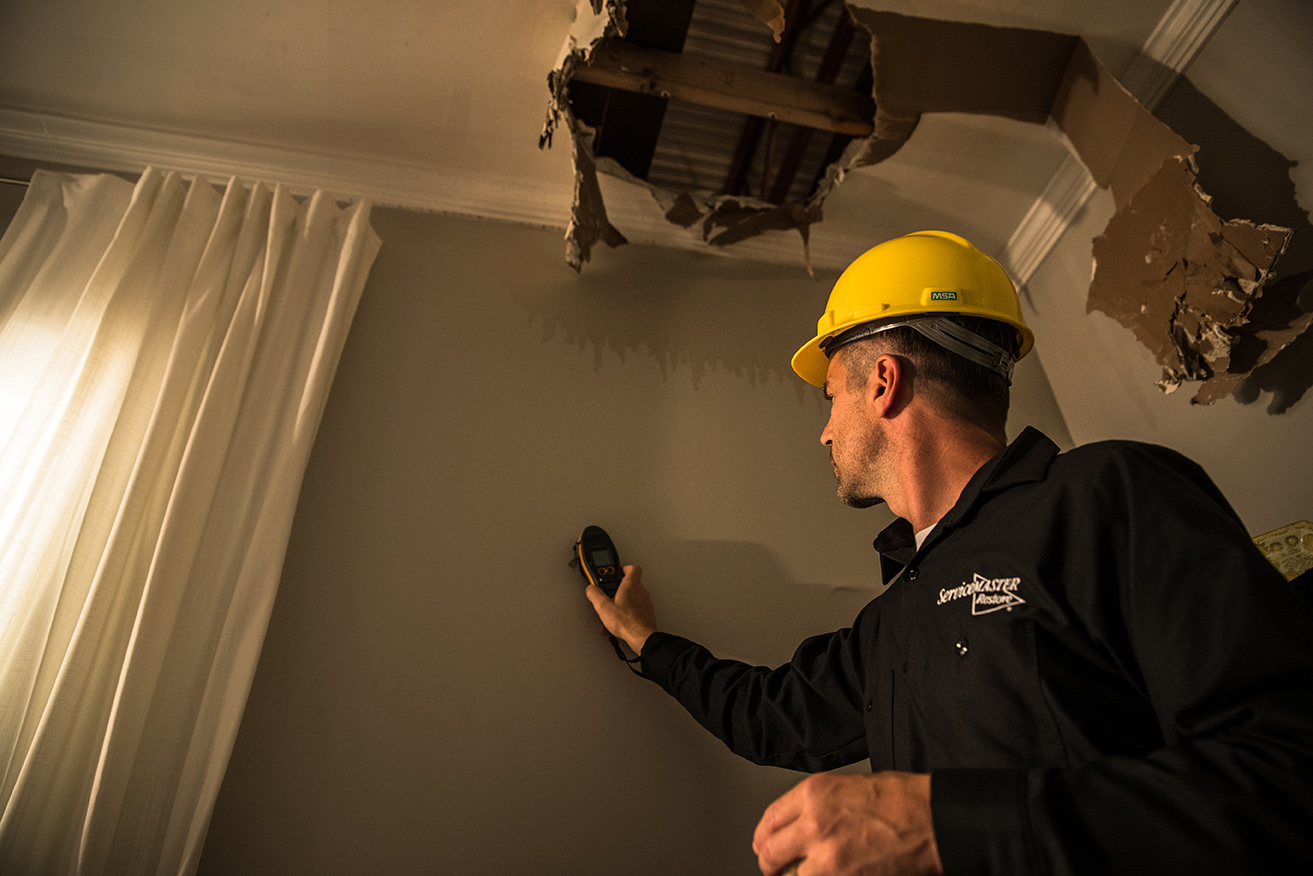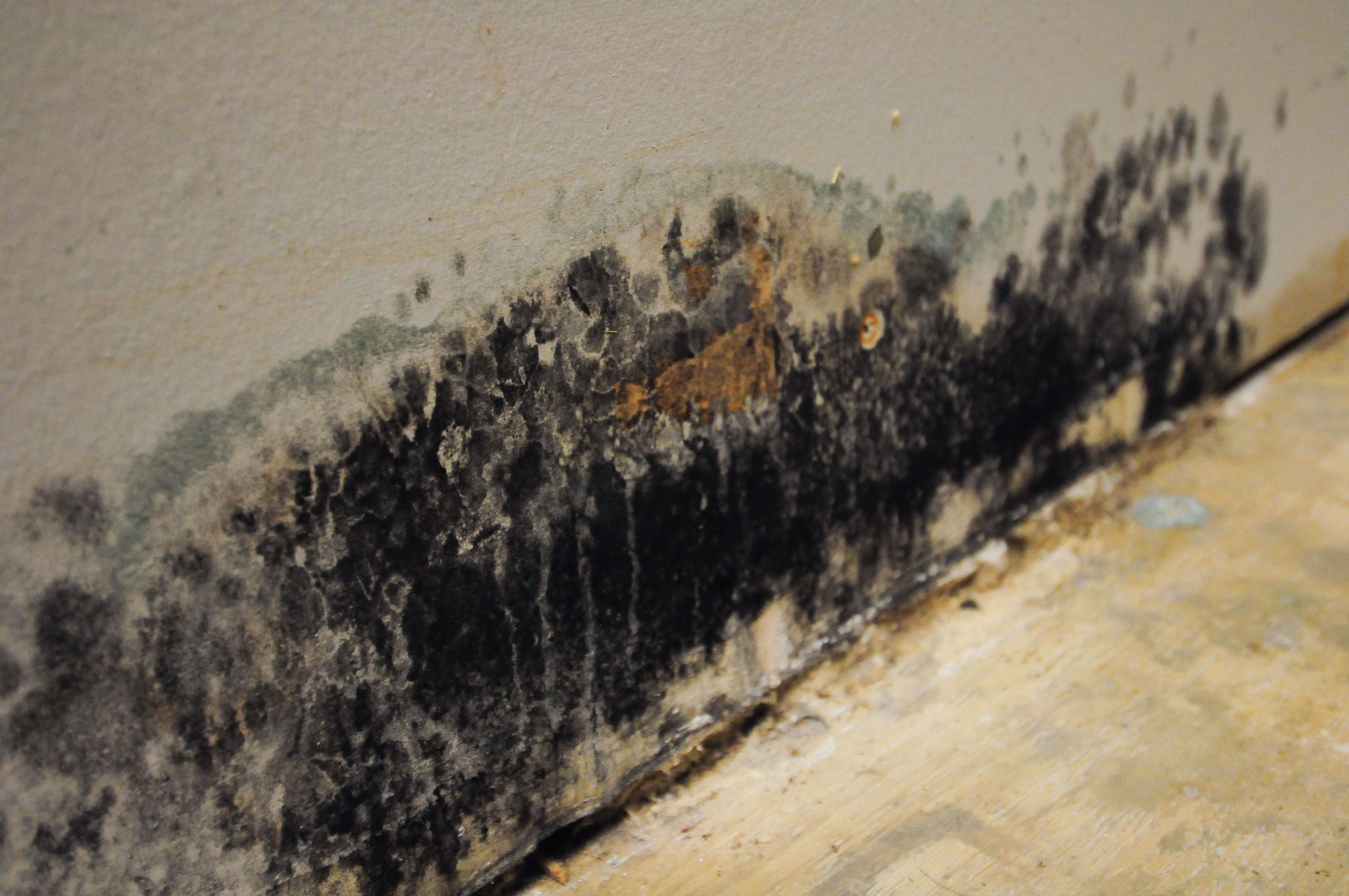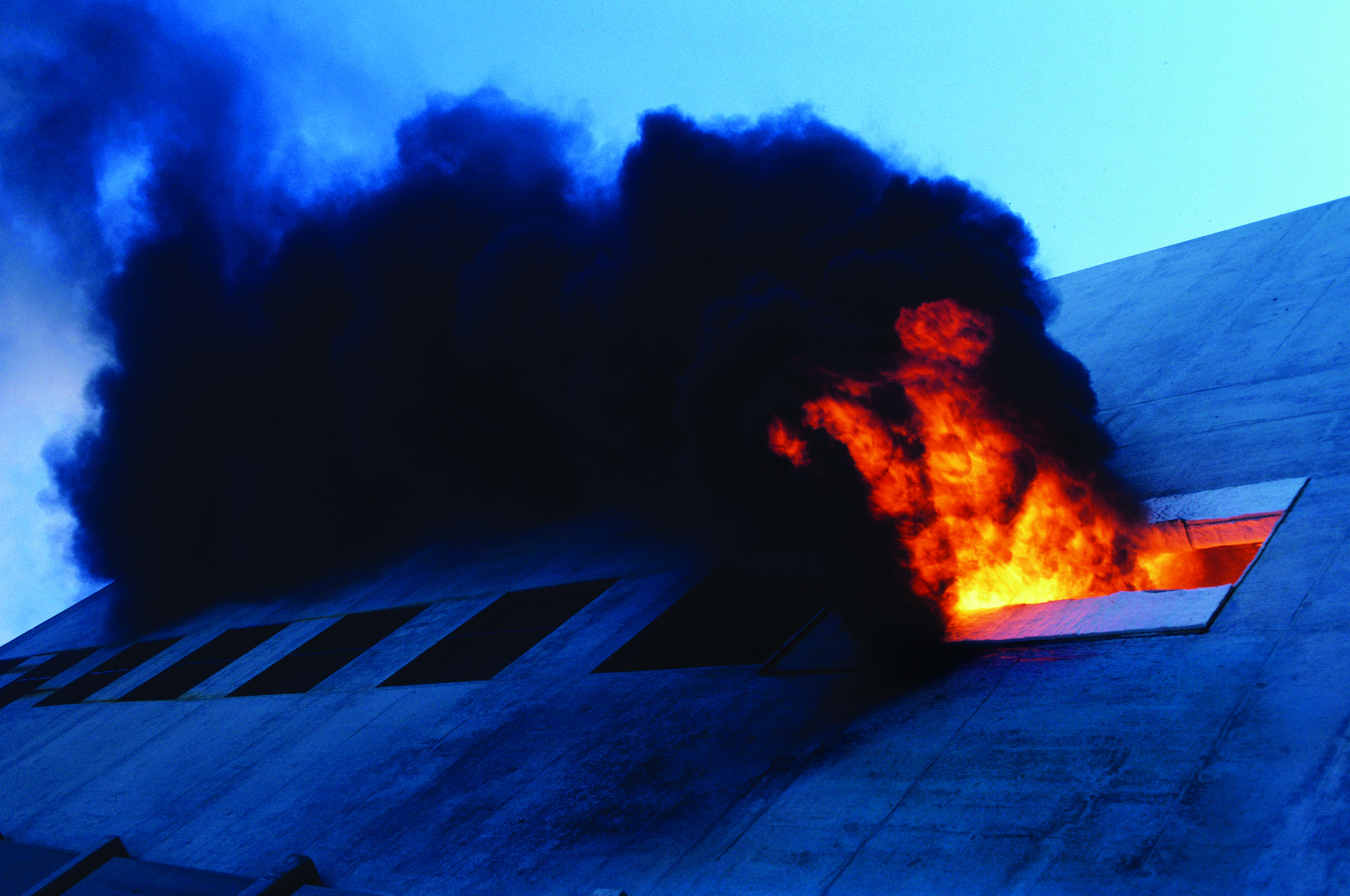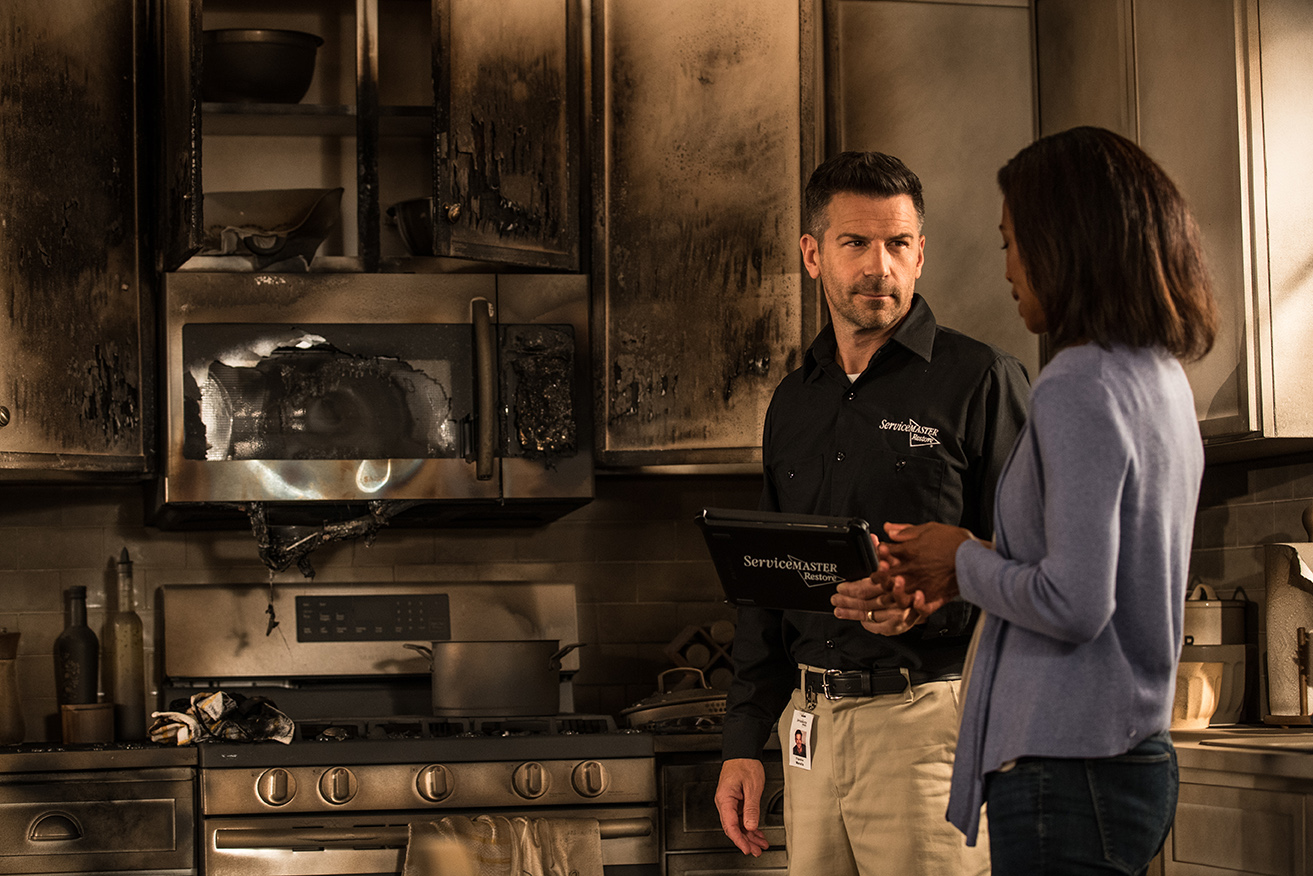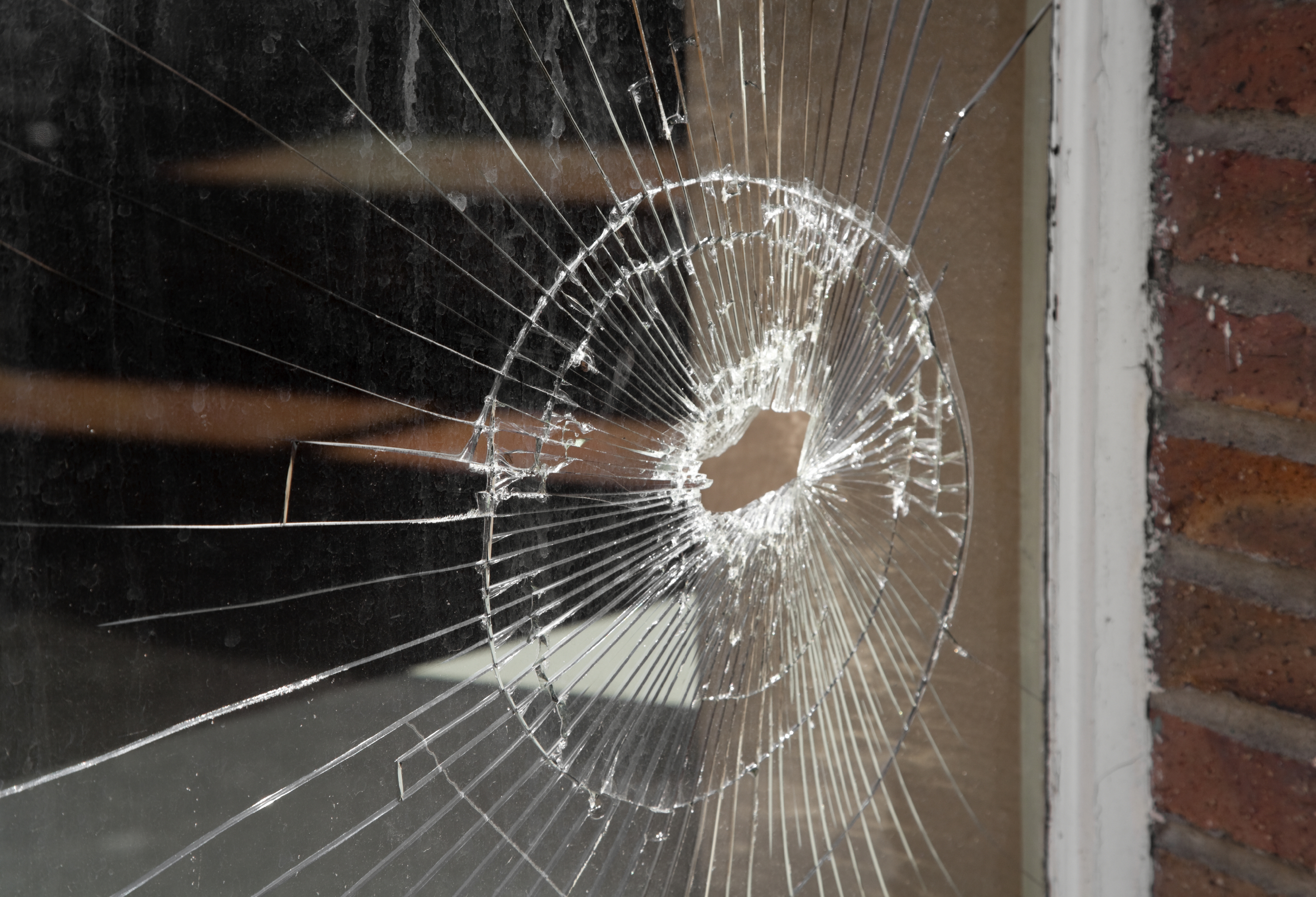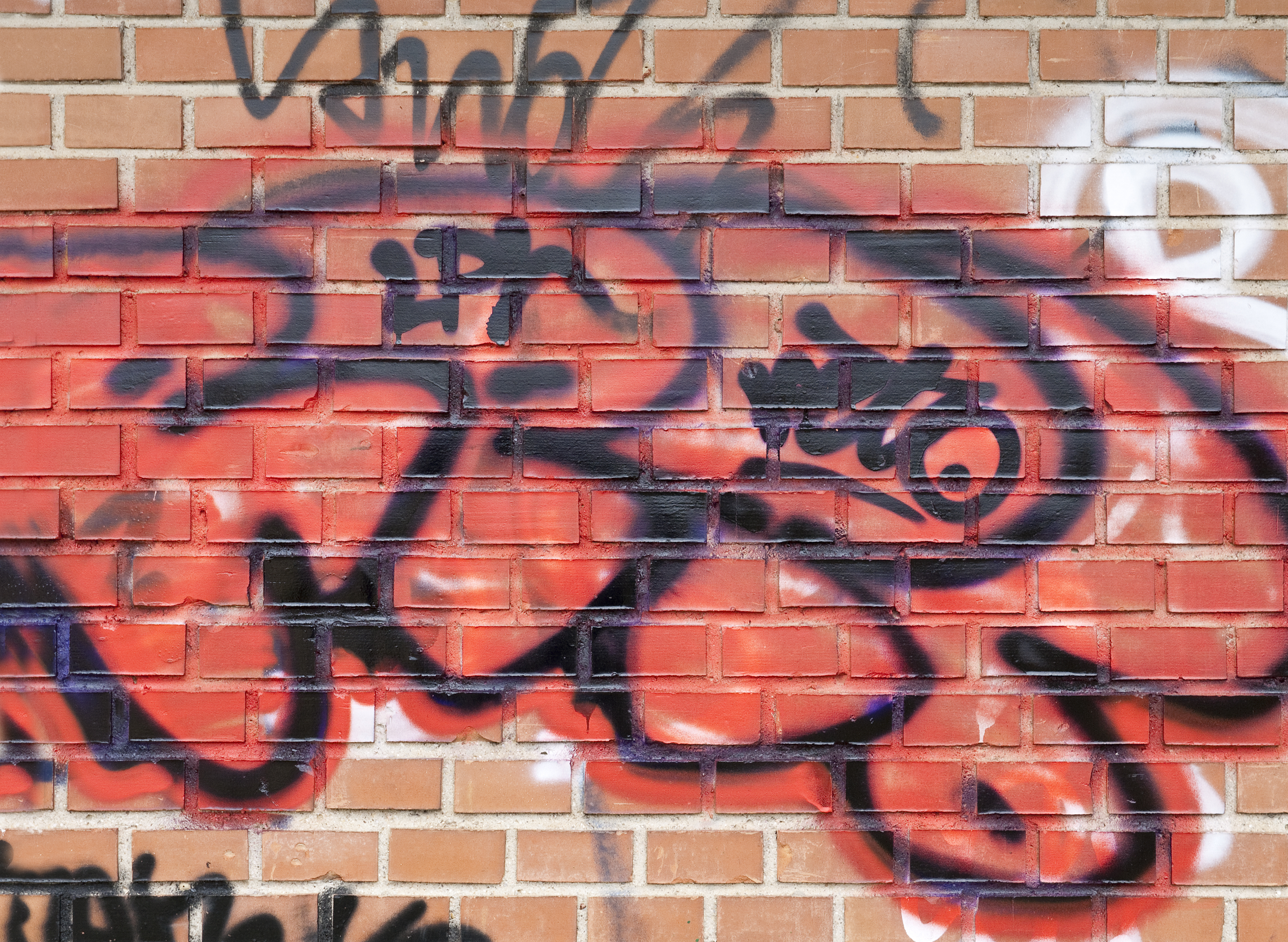YOUR HOME DESERVES THE BEST. WE CAN DELIVER IT, STARTING WITH EXPERT ADVICE ON HOW TO IMMEDIATELY PREVENT MORE DAMAGE.
When fire, smoke or water unexpectedly damage your home, the first steps you take could mean the difference between a small cleanup and a more costly and time consuming restoration.
Knowing when to call in a professional can also save you time in getting your life back to normal and money by preventing further damage to your home.
ServiceMaster Restore® restoration professionals help return your home to normal as quickly as possible while restoring your peace of mind that the job was done right.

